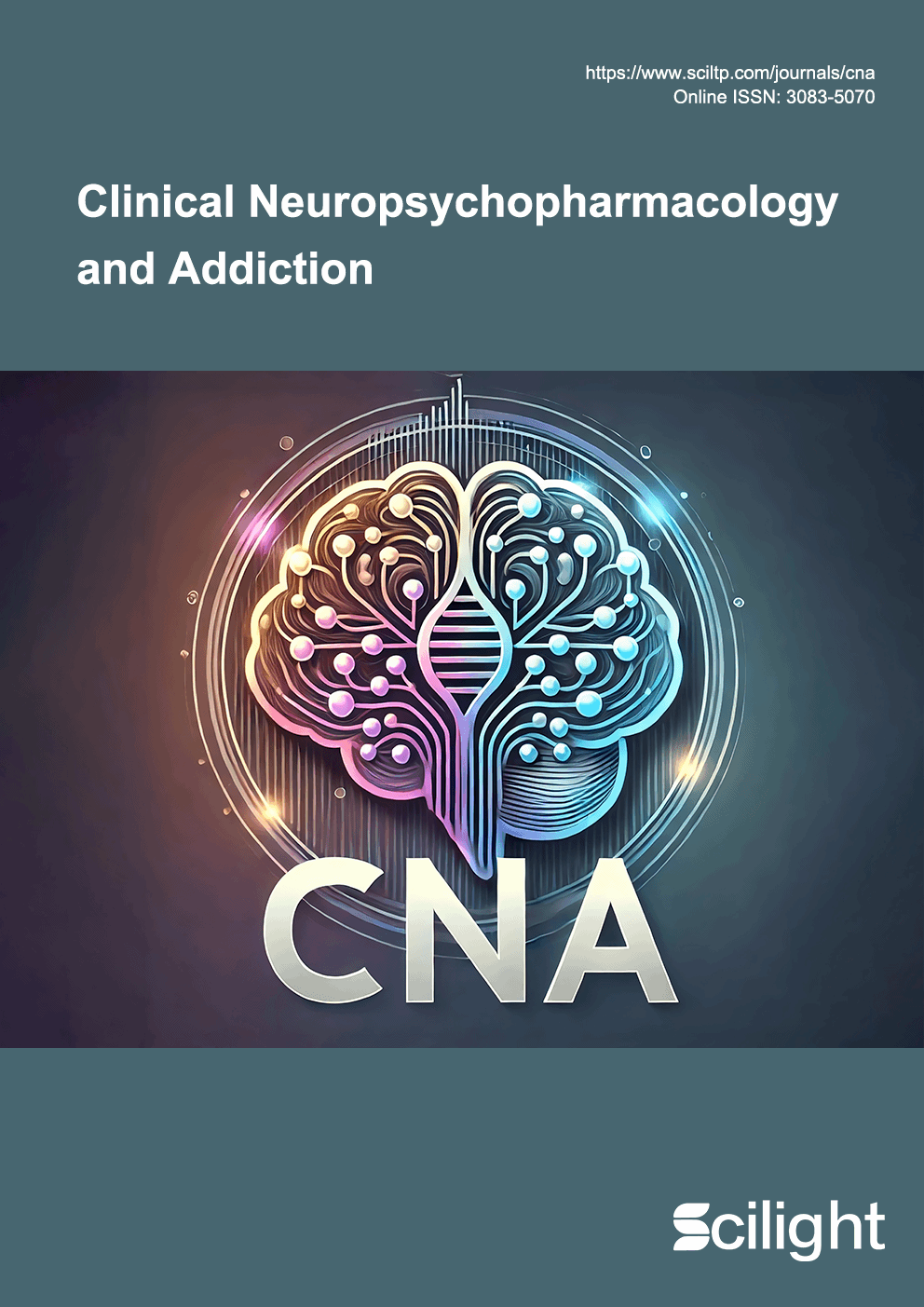Semaglutide, a long-acting glucagon-like peptide-1 (GLP-1) receptor agonist approved for type 2 diabetes and obesity, has demonstrated the ability to reduce drug-seeking behaviors in animal models. We report the case of a 33-year-old woman with severe Cocaine Use Disorder (CUD) and comorbid borderline personality disorder, who also presented with recurrent binge-eating episodes. While continuing the psychopharmacological interventions, an off-label oral semaglutide was initiated (starting and maintaining dose 3 mg daily). Baseline assessments included the Cocaine Craving Questionnaire (CCQ), Barratt Impulsiveness Scale (BIS-11), Eating Disorder Inventory (EDI), Hamilton Depression Rating Scale (HDRS), and Hamilton Anxiety Rating Scale (HARS). At one and three months, repeat evaluations revealed a pronounced decline in cocaine craving, with CCQ subscale scores (Reward, Relief, Obsessive) falling by more than 75%. Impulsivity measured by BIS-11 decreased from 80 at baseline to 33 at three months. Binge-eating behaviors remitted completely, as evidenced by normalization of EDI scores. Depressive symptoms improved modestly (HDRS from 9 to 7), and anxiety symptoms decreased substantially (HARS from 11 to 4). The patient tolerated semaglutide well, reporting no adverse effects. This single-case observation suggests that GLP-1 receptor agonism as add-on to a psychopharmacological treatment may alleviate core features of substance use disorders—craving, impulsivity, and associated affective dysregulation—while also addressing metabolic comorbidities. Potential mechanisms include modulation of mesolimbic dopamine pathways and enhancement of satiety signals, which together may reduce the reinforcing properties of cocaine.
- Open Access
- Case Report
Semaglutide for Craving Reduction in a Cocaine Dependent Patient: A Case Report
- Alessandro Matteo Sileoni 1, *,
- Elena Teresa Turco 1,
- Francesco Semeraro 2,
- Clara Cavallotto 2,
- Alessio Mosca 2,
- Stefania Chiappini 1,
- Giovanni Martinotti 2
Author Information
Received: 14 Mar 2025 | Revised: 28 May 2025 | Accepted: 05 Jun 2025 | Published: 09 Jun 2025
Abstract
Keywords
Semaglutide | GLP-1 receptor agonist | cocaine use disorder (CUD) | metabolic comorbidity | reward pathway | substance use disorder
References
- 1.Shi, I.; Khan, S.S.; Yeh, R.W.; et al. Semaglutide Eligibility Across All Current Indications for US Adults. JAMA Cardiol. 2025, 10, 96–98. https://doi.org/10.1001/jamacardio.2024.4657.
- 2.Drucker, D.J. Mechanisms of Action and Therapeutic Application of Glucagon-like Peptide-1. Cell Metab. 2018, 27, 740–756. https://doi.org/10.1016/j.cmet.2018.03.001.
- 3.EMA Statement on Ongoing Review of GLP-1 Receptor Agonists (EMA, 2023). Available online: www.ema.europa.eu/en/news/ema-statement-ongoing-review-glp-1-receptor-agonists (accessed on 10 May 2025).
- 4.Chiappini, S.; Papanti Pelletier, G.D.; Vickers-Smith, R.; et al. Exploring the nexus of binge eating disorder (BED), New Psychoactive Substances (NPS), and misuse of pharmaceuticals: Charting a path forward. Expert. Opin. Pharmacother. 2023, 24, 1915–1918. https://doi.org/10.1080/14656566.2023.2271389.
- 5.Eren-Yazicioglu, C.Y.; Yigit, A.; Dogruoz, R.E.; et al. Can GLP-1 Be a Target for Reward System Related Disorders? A Qualitative Synthesis and Systematic Review Analysis of Studies on Palatable Food, Drugs of Abuse, and Alcohol. Front. Behav. Neurosci. 2021, 14, 614884. https://doi.org/10.3389/fnbeh.2020.614884.
- 6.Klausen, M.K.; Thomsen, M.; Wortwein, G.; et al. The role of glucagon-like peptide 1 (GLP-1) in addictive disorders. Br. J. Pharmacol. 2022, 179, 625–641. https://doi.org/10.1111/bph.15677.
- 7.Arillotta, D.; Floresta, G.; Papanti Pelletier, G.D.; et al. Exploring the Potential Impact of GLP-1 Receptor Agonists on Substance Use, Compulsive Behavior, and Libido: Insights from Social Media Using a Mixed-Methods Approach. Brain Sci. 2024, 14, 617. https://doi.org/10.3390/brainsci14060617.
- 8.Hendershot, C.S.; Bremmer, M.P.; Paladino, M.B.; et al. Once-Weekly Semaglutide in Adults with Alcohol Use Disorder: A Randomized Clinical Trial. JAMA Psychiatry 2025, 12, e244789. https://doi.org/10.1001/jamapsychiatry.2024.4789.
- 9.Bruns Vi, N.; Tressler, E.H.; Vendruscolo, L.F.; et al. IUPHAR review—Glucagon-like peptide-1 (GLP-1) and substance use disorders: An emerging pharmacotherapeutic target. Pharmacol. Res. 2024, 207, 107312. https://doi.org/10.1016/j.phrs.2024.107312.
- 10.Jerlhag, E. The therapeutic potential of glucagon-like peptide-1 for persons with addictions based on findings from preclinical and clinical studies. Front. Pharmacol. 2023, 14, 1063033. https://doi.org/10.3389/fphar.2023.1063033.
- 11.Di Nicola, M.; Pepe, M.; Montanari, S.; et al. Predictors of polysubstance use in patients with severe alcohol use disorder: The role of reward craving. J. Psychiatr. Res. 2023, 165, 290–297. https://doi.org/10.1016/j.jpsychires.2023.07.041.
- 12.Castro, D.C.; Bruchas, M.R. A Motivational and Neuropeptidergic Hub: Anatomical and Functional Diversity within the Nucleus Accumbens Shell. Neuron 2019, 102, 529–552. https://doi.org/10.1016/j.neuron.2019.03.003.
- 13.Lewis, R.G.; Florio, E.; Punzo, D.; et al. The Brain’s Reward System in Health and Disease. Adv. Exp. Med. Biol. 2021, 1344, 57–69. https://doi.org/10.1007/978-3-030-81147-1_4.
- 14.Hsu, T.M.; McCutcheon, J.E.; Roitman, M.F. Parallels and Overlap: The Integration of Homeostatic Signals by Mesolimbic Dopamine Neurons. Front. Psychiatry 2018, 9, 410.
- 15.Romeo, V.M. Use of semaglutide in a 54-year-old patient with Cocaine Use Disorder (CUD) and weight loss: A case report. J. Med. Case Rep. 2025, 19, 57. https://doi.org/10.1186/s13256-025-05049-w.
How to Cite
Sileoni, A. M.; Turco, E. T.; Semeraro, F.; Cavallotto, C.; Mosca, A.; Chiappini, S.; Martinotti, G. Semaglutide for Craving Reduction in a Cocaine Dependent Patient: A Case Report. Clinical Neuropsychopharmacology and Addiction 2025, 1 (1), 3. https://doi.org/10.53941/cna.2025.100003.
RIS
BibTex
Copyright & License

Copyright (c) 2025 by the authors.
This work is licensed under a Creative Commons Attribution 4.0 International License.
Contents
References


